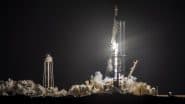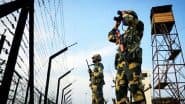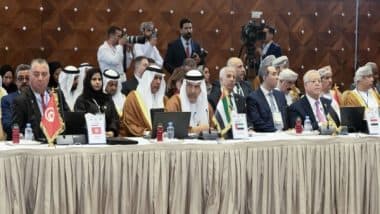Algiers [Algeria], May 4 (ANI/WAM): The Federal National Council (FNC) emphasised that the challenges facing the region -- ranging from political conflicts and disputes, economic and climate crises, to technological complexities -- are increasingly shaping the present and influencing the trajectories of the future.
These challenges place a collective responsibility on all of us to strengthen joint Arab parliamentary action, activate tools of parliamentary diplomacy, promote peaceful solutions, and enhance frameworks of dialogue, integration, cooperation, and Arab solidarity.
This was stated in the FNC's address delivered by Dr. Tariq Humaid Al Tayer, First Deputy Speaker of the FNC and Chairman of the UAE Parliamentary Division delegation to the Arab Inter-parliamentary Union (AIPU), on behalf of Saqr Ghobash, Speaker of the Federal National Council, during the 38th Conference of the AIPU held in Algiers, Algeria, from May 2 to 4, 2025.
The UAE Parliamentary Division stressed the importance of intensifying efforts in parliamentary diplomacy -- regionally and internationally -- in cooperation with all partners to ensure the delivery of humanitarian aid, de-escalation of conflicts, and the protection of civilians in accordance with the rules of international humanitarian law.
Dr. Al Tayer stated that the Palestinian cause remains the foremost issue for Arabs, Muslims, and indeed humanity at large. It is currently undergoing a highly critical and existential moment, facing immense challenges and an unprecedented humanitarian catastrophe. This calls for a unified Arab position that matches the scale of the tragedy, restores justice, dignity, and the legitimate rights of the Palestinian people.
He added that the war in Gaza, now entering its second year, has resulted in tens of thousands of casualties and injuries, forced mass displacement from Palestinian territories, and caused widespread infrastructure destruction. The resulting humanitarian disaster has been exacerbated by the brutal siege imposed by Israel on the Gaza Strip, threatening the collapse of the humanitarian aid system and endangering civilian lives while undermining even the minimum conditions for survival.
Dr. Al Tayer affirmed that moral obligation, historical responsibility, and our shared humanity compel us to rise to this challenge. A unified and steadfast Arab stance is required -- one that reflects the hopes and aspirations of our peoples amid the painful events unfolding in the Palestinian territories. This includes strengthening solidarity and joint action to protect the lives of our Palestinian brothers and sisters, urgently providing humanitarian aid, and urging governments and the international community to fulfill their responsibilities regarding this humanitarian catastrophe.
He emphasised that the United Arab Emirates, throughout its history, has never spared any effort in supporting the Palestinian people--politically, developmentally, and in humanitarian relief. The UAE has consistently stood by them during various circumstances and continues its humanitarian efforts through "Operation Chivalrous Knight 3," which is part of its ongoing aid and relief support to the people of Gaza. This embodies the UAE's deeply rooted humanitarian approach established by the late founding father, Sheikh Zayed bin Sultan Al Nahyan, and continues under the state's steadfast policy in supporting the Palestinian people and defending just causes.
Dr. Al Tayer reiterated the UAE's firm stance rejecting Israel's policy of collective punishment and all attempts at the forced displacement of Palestinians from their lands. He called for an end to starvation and settlement policies, which constitute clear violations of international humanitarian law and UN resolutions.
He further called for a permanent ceasefire, the release of hostages and detainees from both sides, and the resumption of political dialogue through peaceful and effective channels, paving the way for a just settlement that meets the aspirations of the Palestinian people and contributes to establishing security and stability in the region after long years of suffering, violence, and destruction.
He also reaffirmed the UAE's longstanding and unwavering support for the Palestinian cause and the rights of the Palestinian people to live in freedom and dignity. The UAE supports all regional and international efforts aimed at reviving the peace process on the basis of the two-state solution, which it views as the optimal strategic path toward establishing an independent Palestinian state with East Jerusalem as its capital, in line with the Arab Peace Initiative and international legitimacy resolutions.
Dr. Al Tayer concluded by noting that the situation in the Arab region has become increasingly complex and interlinked due to rapid challenges and deep regional and global transformations. These have been intensified by changes in international relations and the rise of a new world order marked by unprecedented alliances and technologies, while at the same time, there has been a decline in the effectiveness of multilateral institutions and a growing erosion of trust in their roles. This reality imposes a collective responsibility on us to rebuild our tools and approaches.
He emphasised, "In light of this, we affirm that the Arab Inter-Parliamentary Union is now more than ever required to rebuild trust by adopting proactive and forward-looking visions to address the most pressing issues. It must strengthen its role as a unifying platform for Arab parliamentary action.
This requires activating parliamentary diplomacy tools at the national, regional, and international levels, developing work mechanisms, and building strategic partnerships with parliaments and international organisations to serve the causes of the Arab nation, its supreme interests, and enhance its position amid a complex and ever-changing global system,'' he concluded. (ANI/WAM)
(This is an unedited and auto-generated story from Syndicated News feed, LatestLY Staff may not have modified or edited the content body)













 Quickly
Quickly














